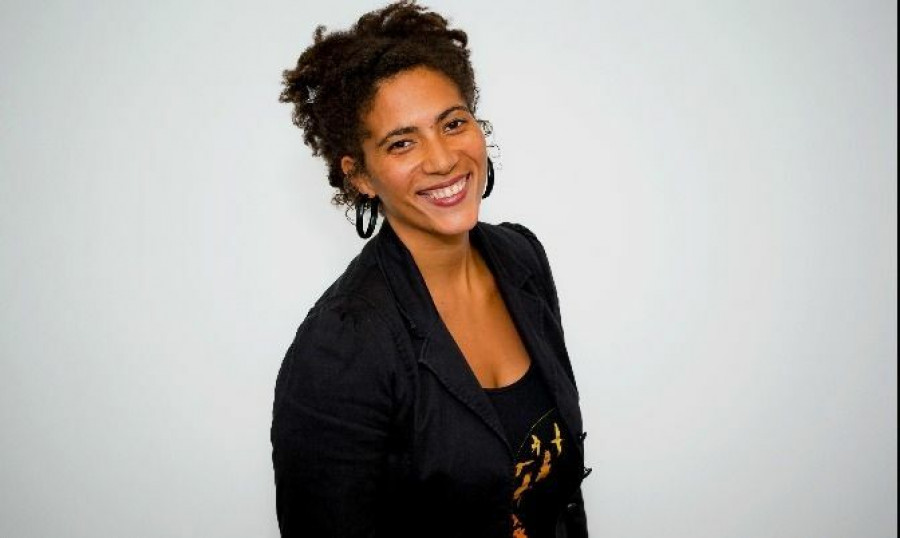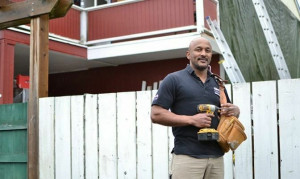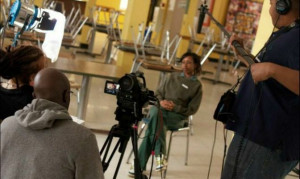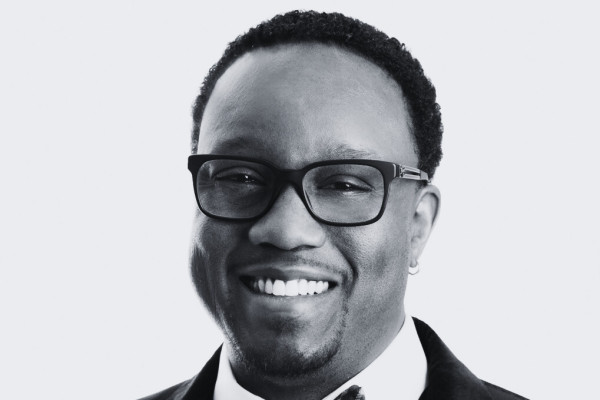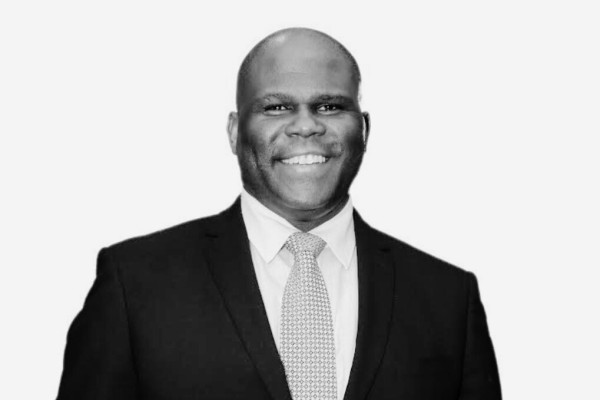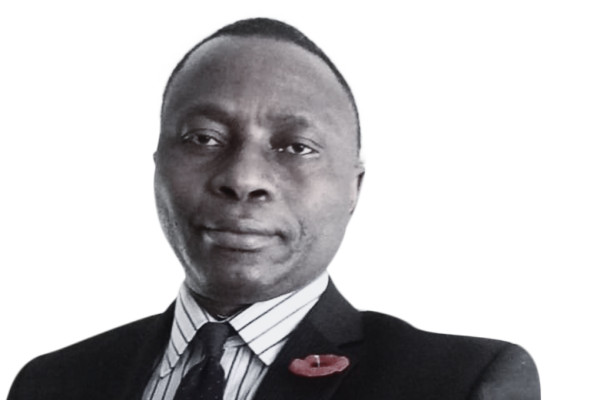Film Synopsis: Black Men Loving is a heart-warming film that challenges racial assumptions and stereotypes often associated with Black fathers in the media. Through short intimate profiles with men from Regent Park and across Toronto, the film strives to share a new perspective on Black fathers, as they take on parenthood in full stride.
Screen the Trailer here: Black Men Loving
The year 2014 seems to be wrapping up on a depressing note for Black men. For some reason, well for many reasons, it has been historically spoken into truth that Black men are innately and disproportionately menacing, irresponsible, hyper-sexualized and subhuman. They are disposable at best and meant to be contained, marginalized and unjustly criminalized.
Black men who avoid predisposed scrutiny—the most extreme punishment being physical abuse, wrongful imprisonment or death by authorities—are considered an exception to the rule. How has this Black male profile survived for generations in countries that purport improved race relations? One needs to go no further than our media consumption as casting a “truthful lens” that forever focuses on Black men in crisis.
The visionaries known as independent filmmakers have become the consistent voice of reason in recent years. If you feel there are no positive Black male role models on the screen, then Toronto filmmaker Ella Cooper’s documentary short on Black fatherhood titled Black Men Loving is a must see. One man after another speaks with heartfelt determination of their responsibilities as a Dad. For the jaded who are watching the film, the back-to-back stories of these strong sensitive males may seem like a population that vanished years ago has just resurfaced. But they’ve been here all along, and they come in peace.
“I was really interested in creating a film that included the stories, words, images and perspectives of the dads and their children,” says filmmaker Cooper. “There was a more collaborative approach to the making of this film, which included a two-day photography and poetry workshop with the fathers and their children around how they wanted to be seen in the world, prior to filming the documentary.”
Cooper describes herself as an emerging filmmaker who shoots and edits her own work. She also adds photographer, director and facilitator of community programming to her experience: “I have primarily been dedicated to highlighting stories of diverse communities, exploring alternate perspectives on Black Canadian identity.” Cooper has done this previously through creating spontaneous dance films around the city and other numerous youth initiatives.
Black Men Loving was commissioned by the Regent Park Film Festival and the Black Daddies Club in response to an exciting opening night session of the 11th Annual Regent Park Film Festival (RPFF) where a few community members requested for their stories as Black single fathers to be shared on screen. The festival immediately answered that call by putting Cooper to work. What was in front of her, and documented thus far for all to see is the statistic cited by Promise Keepers Canada that more than 1.3 million households throughout the country are identified as fatherless. Previous RPFF Executive Director, Anany Ohri, spoke of Cooper’s hire: “Given the community interest in sharing these stories, the impact these stories can make, not only for fathers, but also for their families; given that these stories have not received much exposure and exist at the grassroots of urban, inner city life, the festival is very interested in pursuing a project that engages and collaborates with single Black fathers. In order to do so, and help us deliver an engaged process, and a thoughtful, artful video piece that furthers the conversation on the intersections of fatherhood, blackness and masculinity, we have invited artist / filmmaker / facilitator Ella Cooper to embark on this project with us.”
Cooper took her responsibility seriously and gave voice to the voiceless. She recalls during filming, “One exciting moment was meeting all the dads for the first time during the first workshop. Seeing all the dads, being dads, with their children as well as their intense desire to be positive examples to their families and their communities was incredibly inspirational.” Her camera captures images of a former rap artist and father of three girls whose talents now extend to styling his daughters’ hair, another father who immediately had to face his son’s leukemia diagnosis soon after a successful adoption and a father of four who went from drug dealing to being a living testimony to a child’s willingness to see beyond their parent’s past. Also making an appearance is photographer Zun Lee who reinforces how the invisibility factor of this segment of the population must be eliminated. Thus, the sentiment “We’ve always loved” when spoken in the film never falters. Love is definitely present and comes in all forms no matter status or sexual identity. “I said it before, and while it might sound cliché, they really are being the change they want to see in this world and I became really excited to take on the work of capturing that,” says Cooper.
Cooper’s biggest challenge: My biggest challenge was letting go. So much footage was shot and as I edited, I could see the potential for Black Men Loving to be a multiple episode doc series or potentially longer film. As this is only my second documentary film, it was hard not to want to keep tweaking and perfecting the final cut. In the end, I had to remember my intention and embrace some of the imperfections that come with shooting, editing, sound recording and directing your own work, knowing that I’ll have more opportunities to create work of this kind in the future.
While I had occasional support from incredible assistants and the festival, I really did the bulk filming, sound and editing myself. Perhaps in some way I needed to prove that I could do it all, but in the future, I’m psyched to build a crew that I can share the load with. I’m eager to focus more on direction and cinematography and find a group of solid and talented individuals that I can make films with that share a similar perspective and view on the world.
Audience reaction to the story: So far it’s been incredible. Black Men Loving received a lot of media attention alongside the Regent Park Film Festival, and continues to after the festival. This includes a warm and enthusiastic reception from the general public as well. We are already getting booked for future screenings for the new year and during Black history month. The most heart warming fulfilling response for me as a filmmaker is from the dads who seem really moved by the work and the honouring of their stories.
Cooper says the best advice she has ever received was “’keep shooting, keep making films.’ I think giving yourself permission to make work frequently, keeps you limber and learning. You don’t need a big crew to make films, just get out there and play, believe in the unique vision and perspective you bring to the world.”
Cooper is currently looking to exhibit Body Land Identity, a photographic series, video installation and empowerment project that investigates representations of the Black female body and women of the African Diaspora in the Canadian landscape. Also, her Dance Film in a Day series may be seen on her Vimeo channel and she looks forward to her speaking engagement next year at the NYU Black Portraitures Conference in Florence.
Cooper is a past recipient of the Canada Council Inter-Arts Grant, the Chalmers Professional Development Award, City of Vancouver Award and the OAC’s Multi-Arts & Emerging Visual Artist Grant. To date Cooper’s work has been presented in galleries, subways, gardens, festivals and the streets of Toronto, Vancouver, Calgary, as well as on the CBC.
Black Men Loving is produced in partnership by the Regent Park Film Festival and the Black Daddies Club with support from the Canada Council for the Arts and Liaison of Independent Filmmakers of Toronto (LIFT).
